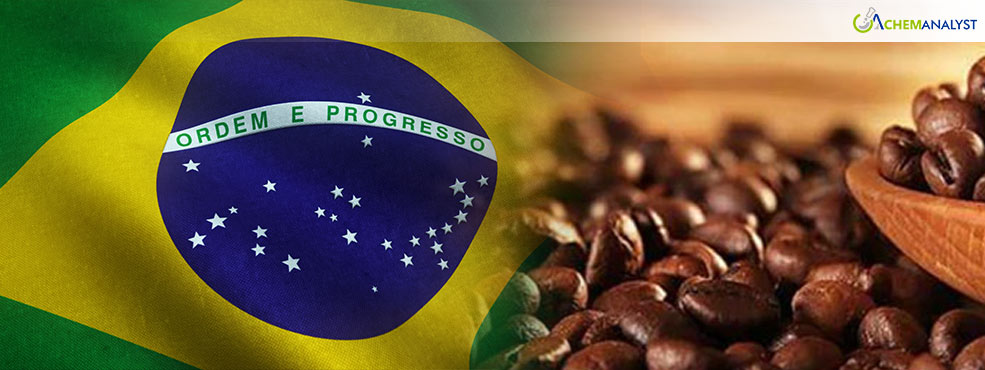Welcome To ChemAnalyst

Extreme heat and prolonged drought in Brazil’s coffee-growing regions have devastated yields, sending arabica coffee prices soaring to their highest levels in nearly 50 years. The crisis, triggered by climate change, is significantly impacting both farmers and consumers, with the future of the global coffee industry now hanging in the balance. Brazil, as the world’s largest coffee producer, plays a pivotal role in global supply, and its struggles are being felt in cities around the world, from New York to Tokyo.
In the heart of Brazil’s coffee-growing regions, the effects of the severe weather are undeniable. Organic coffee farmer Sergio Lange, based in Divinolandia, northeast of São Paulo, is witnessing firsthand the toll the climate crisis is taking on his crops. High temperatures and relentless drought have left his plantations struggling to survive, resulting in stunted plant growth and significantly reduced yields. For farmers like Lange, committed to sustainable farming practices, maintaining organic production under such harsh conditions is increasingly difficult. The lack of rainfall and rising temperatures are disrupting the delicate balance needed for organic farming, threatening both crop production and livelihoods.
The situation is even more dire in nearby Caconde, where farmer Moacir Donizetti Rossetto stands beside a field of burned coffee plants. Extreme heat combined with drought has destroyed entire crops, leaving the plantations beyond recovery. For Rossetto and many others, the financial impact of these lost harvests is catastrophic, not just for this season but for the future viability of their farms.
The ramifications of Brazil’s deteriorating coffee harvest extend far beyond the country’s borders. As the world’s largest exporter of coffee, Brazil’s production shortfalls are causing a ripple effect throughout global markets. Arabica coffee prices hit their highest point in November 2024, with costs expected to rise further as the crisis persists. Consumers in coffee-loving cities worldwide are feeling the impact, as daily cups of coffee become an increasingly expensive luxury.
The situation has raised serious concerns about the future of the coffee industry. With climate change making extreme weather events more frequent and severe, the reliability of coffee harvests is in jeopardy. Brazil’s coffee farmers face growing uncertainty, with unpredictable weather patterns and shrinking water resources threatening their ability to meet global demand. At the same time, the rising cost of coffee may prompt consumers to seek alternatives, further disrupting the market.
For the coffee industry to survive and thrive in the coming decades, urgent action is needed to address the challenges posed by climate change. From adopting more resilient farming practices to investing in water conservation, the future of coffee production hinges on finding sustainable solutions that can weather the growing impacts of a changing climate. Without these changes, the future of coffee – a global staple enjoyed by millions – remains uncertain.
We use cookies to deliver the best possible experience on our website. To learn more, visit our Privacy Policy. By continuing to use this site or by closing this box, you consent to our use of cookies. More info.
